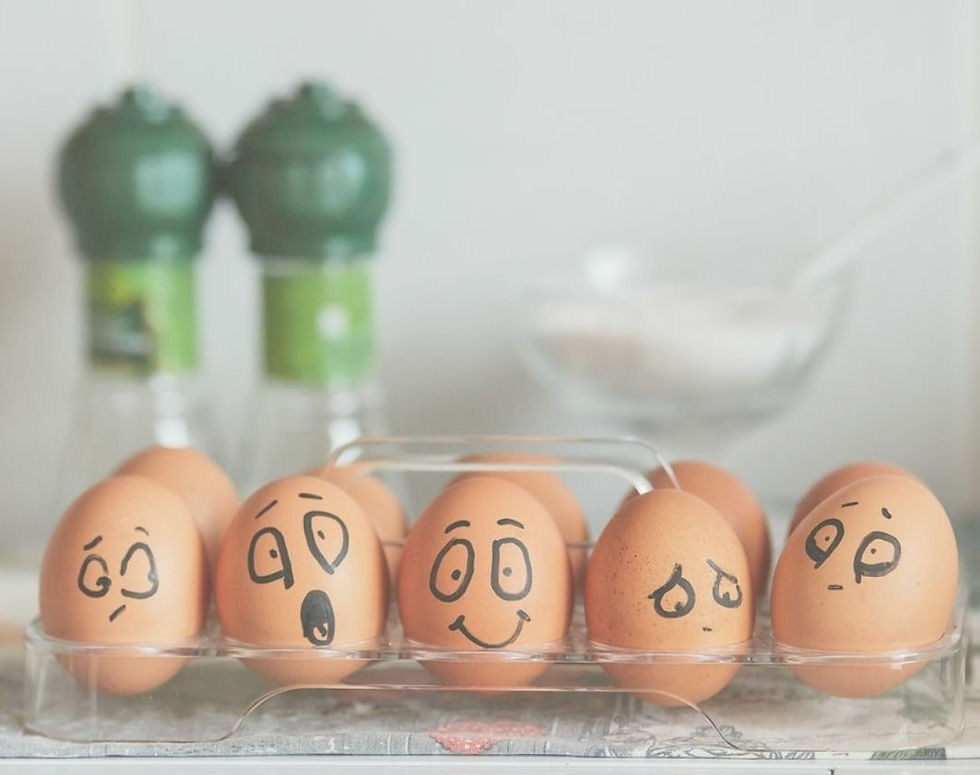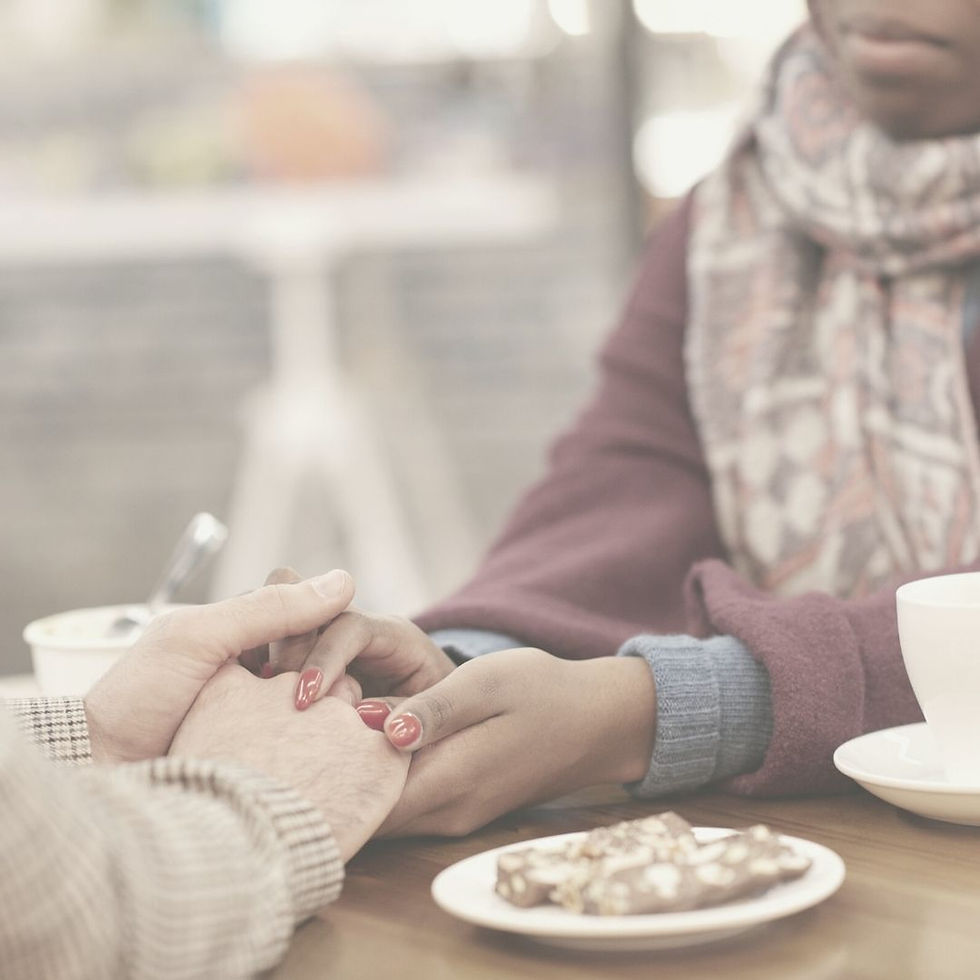In Search for Happiness
- Meita Arethusa
- Oct 12, 2020
- 7 min read

Today, our society encounters a lot of discussions and puts a lot of measures in regards to happiness. On a personal level, it is very common for us to inquire about our state of happiness. Questions such as “am I happy?” “why can’t I be happy?” “how can I be happy” are considered normal and even encouraged to some extent. Further, it is not surprising to hear a number of people taking “I just want to be happy” as a life goal.
Interestingly, our generation’s obsession with happiness has not started until only recently. Until arguably the 18th century, and even later in developing nations, happiness had never been the top priority. People were living their day to day lives by means of survival or by following society’s rules, either written or otherwise. As mundane as it sounds, to say that people were less happy back then can be quite an understatement.
We are currently living a far better life and putting way more importance on happiness compared to 100 years ago. Ironically, for a lot of us, it feels that happiness is even more difficult to reach. Why is it then that we as a society seem to be more and more unhappy despite all the positive efforts?
What is Happiness: Good and Bad Emotional State
We as individuals tend to divide emotions into two categories: good or bad. To simplify, happy, joy, getting a promotion and pay rise, having a laugh; those are good, thus positive. Crying, sadness, and grief, those are bad, thus negative and we need to avoid them at all cost. When we are feeling bad, and it goes for a little longer than we wanted to, we start to wonder what is wrong with us? Why can’t we just be happy all the time? We have more than the basic things we need, we are not struggling with war or waiting for nuclear bombs to land anytime soon. But still, we are not happy all the time. On the contrary, we heard so many times that there are so many ways to be happy that some of us might even start feeling guilty for feeling bad.
Before we go even further, let’s step back to the definition. Happiness is defined as a state of well-being and contentment or a pleasure or satisfying experience (Merriam Webster). As the definition suggests, happiness is “a state” or “an experience”. It means that it is possible and completely normal for this state and experience to change from time to time, as it is nothing but finite.
Thus, is it actually realistic to be happy all the time?

"happiness is “a state” or “an experience”. It means that it is possible and completely normal for this state and experience to change from time to time, as it is nothing but infinite. Thus, is it actually realistic to be happy all the time?"
The Trap of Ultimate Happiness
As humans, we have a range of emotions that we experience every day, including excitement, joy, sadness, grieve, and fear. When faced with uncertainty, we exercise anxiety. When faced with the news of losing one’s love, we exercise grieves. When we don’t feel fulfilled in our lives, we exercise dissatisfaction.
If we trace this change of feeling biologically, it is a human response towards events in life. Being anxious is a way for our body to tell us that we should be aware of some sort of danger and we should find a way to avoid or to solve it. We feel pain when we lose someone because we love that person and would rather see him/her alive so that we can share more memories with him/her, that we care about their state of wellbeing. Dissatisfaction is telling us that we are not yet achieving what we desire and we should start acting on it. Stress is a way of our body to bring more adrenaline and even for some cases excitement so that we would be able to operate on the matter or occurrence accordingly.

"Being anxious is a way for our body to tell us that we should be aware of some sort of danger. We feel pain when we lose someone because we care about their state of wellbeing. Dissatisfaction is telling us that we are not yet achieving what we desire..."
On top of that, experiencing sadness and grief helps us to have more sympathy towards other people’s misfortunes. It helps us understand that losing a family and friends or careers or experiencing hazards is awful, so that we would happily offer our shoulder for other people to cry on. We would gladly offer help when needed because we have practiced similar pains and stresses at some points in our life. We would be able to grasp our colleagues’ stress while facing an enormous load of work and offer assistance if required.
Thus, being “happy” all the time is not only impossible biologically, but can also be a threat towards our emotional self-growth. People who never experience sadness, stress, failure, loss, and grief would not be aware that they are facing some unpleasant or undesirable situation. They would not realize that sometimes they need to act on an event or to even change their perspective in life, to pat themselves on the back, or to have empathy towards other people’s problems. On the other hand, it helps us feel more grateful for the more enticing and joyful events in our life, knowing that they won’t be there the whole time. It helps us to cherish the moments we have with the people we love and the places we adore.

"... experiencing sadness and grief help us to have more sympathy towards other people’s misfortunes. It helps us understand that losing a family and friends or careers or experiencing hazards is awful, so that we would happily offer our shoulder for other people to cry on."
Therefore, rather than addressing these “bad” feelings by avoiding or stopping them, perhaps it is a good idea to start embracing them. Those feelings exist not to torture us, but to inform us that we are facing some conditions in our life. Truth to be told, these “bad feelings” are even necessary as an alert to start figuring out how to react to certain circumstances, and in some instances to avoid it from happening again in the future. By experiencing these so-called undesirable feelings, we grow wiser and stronger every day, ready to tackle what worlds are going to give us in an uncertain future.
Happiness as Commodity
How did we go from life improvement to the obsession of ultimate happiness? Where did we go wrong?
Unfortunately, similar to almost every other element of society, our happiness has turned to be one of the commodities. In the age of consumerism, capitalism prey on each aspect of a person's lifestyle and habit that possesses selling potentials. If in the 18th century it was the status of wealth to be gained, at the moment it is happiness and a sense of fulfillment. Everything from bags, jewelry, food, and alcohol, are now being advertised as sources of happiness. As bitter as it sounds, even traveling, health programs, and experiences are displayed as products to indulge happiness for the consumers.

"Everything from bags, jewelry, food, are now being advertised as sources of happiness. As bitter as it sounds, even traveling, health pro-grams, and experiences are displayed as pro-ducts to indulge happi-ness for the consumers."
As a result, the odds of people being addicted to shopping or food or alcohol are far from low, as they were promised to feel good by doing so. Sadly, the more they address these products as sources of their happiness, the worse it gets. The satisfaction of having new items or eating more doesn’t last very long. Thus, once the feeling is diminished, they have to repeat the same action over and over again so that they can feel good all the time. They are not necessarily addicted to the goods, but to the pleasure of opening new boxes or tasting new bites.
Similar to traveling and experiences, more and more people are feeling left out for not being able to experience new famous places or to visit new countries, as these actions are advertised as “guaranteed happiness” in some sense. Suddenly, our life won’t be complete unless we start seeing different cultures and facing different environments. An enormous amount of traveling related ads are popping up on almost all social media, accelerated by increasing numbers of travel bloggers and influencers.

"...more and more people are feeling left out for not being able to experience new famous places or to visit new countries. Suddenly, our life won’t be complete unless we start seeing different cultures and facing different environments..."
In an instance, to be happy, we don’t only need to have a good job or decent material possessions, but also to be a member of some sort of health club, checking out some hip places every weekend, and not to forget to constantly travel. No wonder that chasing happiness for our generation is not only far from our reach, but impossible and rather drives us depressed and anxious. Ironically, it feels more like a chore rather than its initial purpose.
Embracing Feelings as Part of One’s Journey
I’m not here to say that we shouldn’t buy stuff or good food or experiencing new things or visiting new continents. Those are valid acts and might help us to be a better and a more open-minded fellow. What I was trying to stress here is not to put much pressure on goods or events or activities as the source of our happiness.
Better yet, perhaps it is time to stop focusing our life on trying to be happy all the time, but to experience what life has to give us instead. To embrace every different feeling we have as a way of our body to tell us how to react. Cease all difficult questions that demand no answer and start concentrating on what is in front of us. By doing so, we believe that it will be less likely for one to get trapped in “buying happiness” as a product or commodity.

"Perhaps in the end, the ultimate happiness can be reached by not exclusively searching for it at all?"
Last but not least, it is important to understand that everyone has their own approach to feel content. Everybody is born unique, thus there is no one size fits all. One person might feel fulfillment by travelling, or by working, or by taking care of their families and loved ones. There is no reason that one person needs to do all three of those or more to feel blessed in their lifetime.
Perhaps, in the end, the ultimate happiness can be reached by not exclusively searching for it at all?
Disclaimer: This article is a personal reflexion on emotional management towards finding happiness. It does not seek to address depression or anxiety disorder. If you experience prolonged sadness, anxiety, or grief, please contact professional help.




Comments